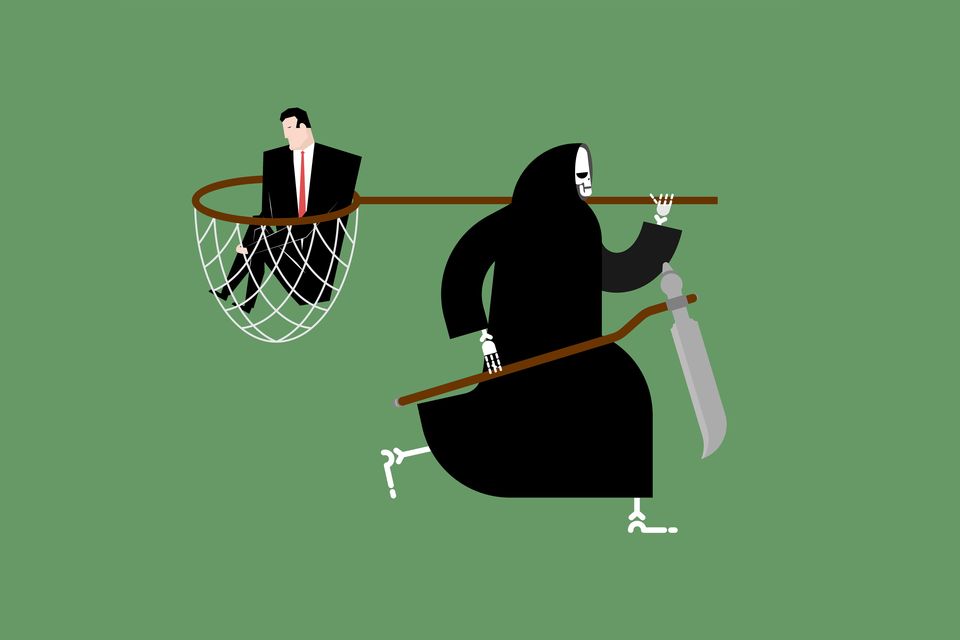Health
Irish Men Face Early Mortality: Unpacking the Gender Gap

The gender gap in mortality rates is a pressing issue in Ireland, with men facing significantly higher risks of dying young. Recent discussions have highlighted personal stories, such as that of **Peter Larkin**, who lost his sister to cancer at an early age. This loss has motivated Larkin to prioritize his health, reflecting a broader concern regarding the life expectancy of Irish men.
Larkin, now **52 years old**, acknowledges that his health consciousness has evolved over time. “I wouldn’t say that has always been the case,” he explains. His commitment to a healthier lifestyle includes careful attention to diet, abstaining from alcohol, and ensuring regular physical activity. “You can’t outrun a bad diet,” he emphasizes, underlining the importance of nutrition in maintaining health.
Statistics reveal that Irish men are dying at a rate that is notably higher than their female counterparts. According to the **Central Statistics Office of Ireland**, men have a life expectancy of approximately **78 years**, compared to **83 years** for women. This disparity is often attributed to various factors, including lifestyle choices, access to healthcare, and social determinants of health.
Challenges such as mental health issues and lower engagement with healthcare services often exacerbate the situation. Many Irish men are less likely to seek medical advice or support, which can result in untreated health conditions. Larkin’s story highlights the need for increased awareness and proactive health measures among men in Ireland.
Efforts are underway to address these health disparities. Organizations such as the **Irish Cancer Society** have launched campaigns aimed at encouraging men to take charge of their health. These initiatives focus on educating men about the importance of regular check-ups and lifestyle changes that can significantly reduce health risks.
The government has also recognized the significance of tackling this issue. In **2022**, the **Health Service Executive** released a report emphasizing the need for tailored health programs that specifically target men’s health. The report suggests that addressing lifestyle factors and promoting preventive care could lead to improved health outcomes for men.
Awareness and education are crucial in bridging the gender gap in health. Larkin’s proactive approach serves as a reminder that individual choices can have a significant impact on overall health. By prioritizing diet, exercise, and mental well-being, men can take steps toward improving their life expectancy.
As the conversation around men’s health continues to evolve, it is vital for individuals and communities to engage in discussions about lifestyle choices and health practices. The ongoing efforts by health organizations and government bodies aim to foster a culture of health awareness, ultimately striving to reduce the mortality gap between genders in Ireland and beyond.
-

 Top Stories3 months ago
Top Stories3 months agoTributes Surge for 9-Year-Old Leon Briody After Cancer Battle
-

 Entertainment4 months ago
Entertainment4 months agoAimee Osbourne Joins Family for Emotional Tribute to Ozzy
-

 Politics4 months ago
Politics4 months agoDanny Healy-Rae Considers Complaint After Altercation with Garda
-

 Top Stories4 months ago
Top Stories4 months agoIreland Enjoys Summer Heat as Hurricane Erin Approaches Atlantic
-

 World5 months ago
World5 months agoHawaii Commemorates 80 Years Since Hiroshima Bombing with Ceremony
-

 Top Stories3 months ago
Top Stories3 months agoNewcastle West Woman Patricia Foley Found Safe After Urgent Search
-

 Top Stories5 months ago
Top Stories5 months agoFianna Fáil TDs Urgently Consider Maire Geoghegan-Quinn for Presidency
-

 World5 months ago
World5 months agoCouple Convicted of Murdering Two-Year-Old Grandson in Wales
-

 World5 months ago
World5 months agoGaza Aid Distribution Tragedy: 20 Killed Amid Ongoing Violence
-

 World5 months ago
World5 months agoAristocrat Constance Marten and Partner Convicted of Infant Murder
-

 Top Stories4 months ago
Top Stories4 months agoClimbing Errigal: A Must-Do Summer Adventure in Donegal
-

 Top Stories4 months ago
Top Stories4 months agoHike Donegal’s Errigal Mountain NOW for Unforgettable Summer Views









